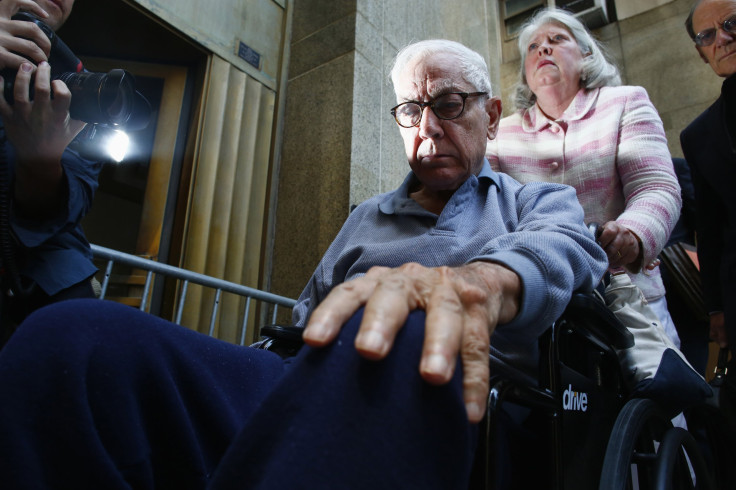Brooke Astor’s Son Anthony Marshall, Who Was Jailed For Stealing Millions From Late Mother, Gets Medical Parole

Anthony Marshall, son of philanthropist and socialite Brooke Astor, who was convicted in 2009 for embezzling millions from his late mother, was on Thursday granted parole owing to his age and medical condition, reports said.
The 89-year-old Marshall has served two months of his one-to-three year prison sentence, and the New York State Division of Parole stated that he was “suffering from a significant and permanent non-terminal condition, disease or syndrome” and that he does “not present a danger to any society,” Wall Street Journal reported.
Besides Parkinson's disease, Marshall suffers from other ailments that make him dependent on others. According to reports, his lawyer presented to the board 900 pages of health records showing that Marshall could not walk, stand, clean himself or dress himself, and has trouble swallowing.
“We’re gratified by the parole board’s unanimous and compassionate decision,” Kenneth E. Warner, one of Marshall’s lawyers, said in an e-mail to New York Times.
Marshall and Francis X. Morrissey Jr., a lawyer, were convicted in 2009 for stealing millions from Astor, who was suffering from Alzheimer’s disease at the time, by tricking her into altering her will. Marshall is said to have had a strained relationship with his mother, and one year before Astor’s death in 2007, at the age of 105, Philip Marshall had filed a lawsuit against his father accusing him of mistreating his grandmother, Astor, and mismanaging her funds.
Elizabeth Loewy, a Manhattan assistant district attorney, had opposed Marshall’s medical parole stating that it would “compromise the public’s confidence in the fairness and even-handedness of the criminal justice system,” according to the New York Times.
“If the parole board were to make an exception for an elderly inmate like Marshall, the message to healthy elders who are tempted to commit financial abuse against family members could well be that the benefits of the crime outweigh the risk of punishment,” Loewy wrote in a letter opposing the move.
© Copyright IBTimes 2025. All rights reserved.





















